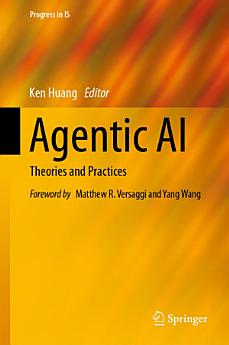Agentic AI: Theories and Practices
About this ebook
The work concludes with a critical examination of related safety and security considerations, emphasizing the need for proactive measures. Maintaining a forward-looking perspective, it prompts readers to consider how these technologies might reshape industries and society, raising important questions about the changing nature of work, ethical aspects, and equitable distribution of benefits.
Bridging theoretical foundations and practical applications, the book offers valuable insights for data scientists, IT managers, CIOs, CAIOs, CTOs, business analysts, and graduate students seeking to understand and apply AI’s transformative potential across various industries.
About the author
Ken Huang is a prolific author and respected expert on AI and Web3, with numerous published books spanning business and technical guides and cutting-edge research on these fields. As a Research Fellow and Co-Chair of the AI Safety Working Group at the Cloud Security Alliance, and as Co-Chair of the AI STR Working Group at the World Digital Technology Academy, he’s at the forefront of shaping AI governance and security standards. Ken also serves as CEO and Chief AI Officer (CAIO) of DistributedApps.ai, specializing in Generative AI-related training and consulting. His expertise is further showcased in his role as a core contributor to OWASP’s Top 10 Risks for LLM Applications and his active involvement in the NIST Generative AI Public Working Group. A globally sought-after speaker, Ken has presented at prestigious events including the Davos WEF, ACM, IEEE, CSA AI Summit, IEEE, ACM, Depository Trust & Clearing Corporation, and World Bank conferences. Ken is a member of the OpenAI Forum, where he works to advance its mission to foster collaboration and discussion among domain experts and students regarding the development and implications of AI.







